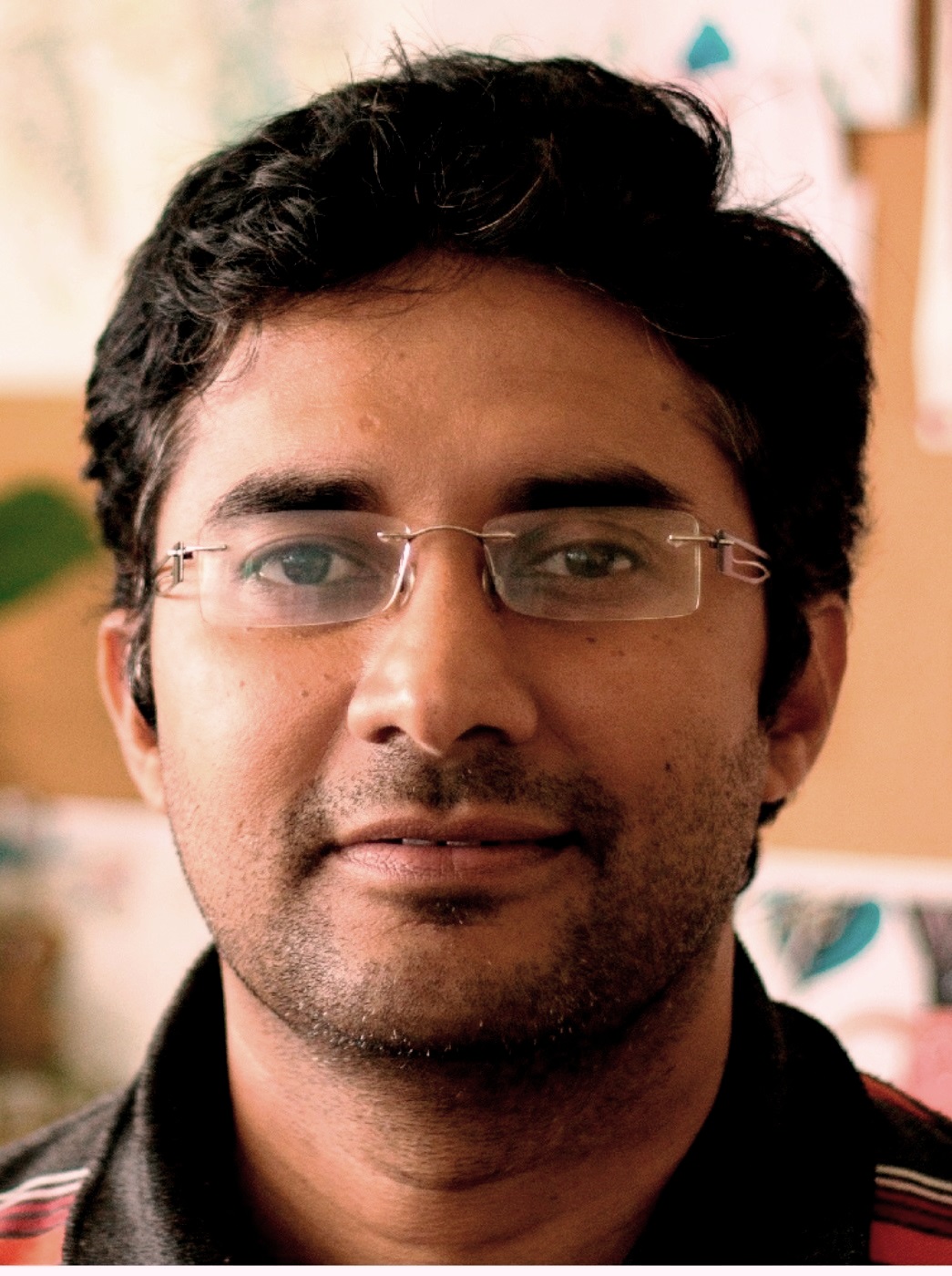Vishwesha Guttal
Our work is driven by theory but has key components of experiments and field work too. Therefore, we welcome students from all backgrounds to join our lab. Check our lab page! for more details:
I am most fascinated by self-organization, emergent patterns and spatiotemporal dynamics in the ecological world, from flocks of birds and swarming insects to striking spatial patterns of vegetation. A fundamental theme of my research is to understand how these macroscopic patterns emerge from local interactions among their constituents. I address questions arising from these systems from the perspective of both ecology and evolution. I am interested in developing mathematical and statistical methods for being able to predict future dynamics of ecological systems, in particular those that may exhibit unexpected and dramatic changes and are continually subjected to human and other environmental stressors.
To address these questions use a strong interdisciplinary approach by integrating principles of non-equilibrium statistical physics and other mathematical disciplines with those of ecology and evolutionary biology. To test our predictions of mathematical models, or to parameterize them, we employ real data from experiments, field observations, satellite imagery, etc. Specifically, I have looked at formation of ant-trails, evolution of collective animal motion in the context of migration and predation, formation of vegetation patterns and how they are influenced by environmental perturbations, etc. I have looked at how ecological systems may suddenly undergo catastrophic shifts from one state to another, and how we can use principles of phase-transitions in physics to develop early warning signals of such shifts.
Prior to joining IISc, I was a postdoc in the group of Iain Couzin at the department of Ecology and Evolutionary Biology at Princeton University.
I did my PhD in Physics at The Ohio State University working with Prof. C Jayaprakash on theoretical ecology.
My undergraduate education (Integrated MSc in Physics) was at IIT Kanpur -- this was where I was first introduced to theoretical biology by Prof Debashish Chowdhury. Much of my schooling was in Bengaluru, Karnataka, India.
Collective animal behaviour:
Jitesh Jhawar, Richard G. Morris, U. R. Amith-Kumar, M. Danny Raj, R. Harikrishnan, Tim Rogers and Vishwesha Guttal, 2020, Noise-Induced Schooling of Fish, Nature Physics, 16: 488–493 doi: https://doi.org/10.1038/s41567-020-0787-y
Hari Sridhar and Vishwesha Guttal, 2018, Friendship across species borders: factors that facilitate and constrain heterospecific sociality, Phil. Trans. Royal Society of London B, 373: 20170014.
Jaideep Joshi, Iain D Couzin, Simon A Levin, Vishwesha Guttal, 2017, Mobility can promote the evolution of cooperation via emergent self-assortment dynamics, PLoS Computational Biology. 13(9):e1005732
Christos C Ioannou, Vishwesha Guttal, Iain D Couzin, 2012, Predatory fish select for coordinated collective motion in virtual prey. Science. 337: 1212-1215,
Vishwesha Guttal*, Pawel Romanczuk*, Stephen J Simpson, Gregory A Sword, Iain D Couzin, 2012, Cannibalism as a driver of the evolution of phase polyphenism in locusts, Ecology Letters, Vol 15:1158-1166.
Vishwesha Guttal, Iain D. Couzin, 2010, Social interactions, information use and the evolution of collective migration, Proceedings of the National Academy of Sciences, USA. 107:16172-16177.
Regime Shifts:
Nikunj Goel, Vishwesha Guttal, Simon A Levin and Carla Staver, 2020, Dispersal increases the resilience of tropical savanna and forest distributions, TheAmerican Naturalist, 195: 833-850 doi: https://doi.org/10.1086/708270
Sumithra Sankaran, Sabiha Majumder, Ashwin Viswanathan and Vishwesha Guttal, Clustering and correlations: Inferring resilience from spatial patterns in ecosystems, 2019, Methods in Ecology and Evolution, 10: 2079-2089, doi: https://doi.org/10.1111/2041-210X.13304
Chen Ning, Kailiang Yu, C Jayaprakash, Vishwesha Guttal, 2018, Rising variability, not slowing down, as a leading indicator of a stochastically driven abrupt transition in a dryland ecosystem, The American Naturalist, 191: E1 E14
Stephanie Eby*, Amit Agrawal*, Sabiha Majumder, Andew Dobson and Vishwesha Guttal, 2017, Alternative stable states and spatial indicators of critical slowing down along a spatial gradient in a savanna ecosystem, Global Ecology and Biogeography, 26: 638-649
Vishwesha Guttal, Srinivas Raghavendran, Nikunj Goel, and Quentin Hoarau. 2016, Lack of Critical Slowing Down Suggests that Financial Meltdowns Are Not Critical Transitions, yet Rising Variability Could Signal Systemic Risk, PLoS ONE, 11(1): e0144198.
Sonia Kefi*, Vishwesha Guttal*, William A Brock, Stephen R Carpenter, Aaron M Ellison, Valerie N Livina, David A Seekel, Marten Scheffer, Egbert H van Nes, Vasilis Dakos, 2014, Early warning signals of ecological transitions: Methods for spatial patterns, PLoS ONE 9(3): e92097. (*These authors contributed equally to this work).
Vishwesha Guttal, C. Jayaprakash. 2009, Spatial variance and spatial skewness: Leading indicators of regime shifts in spatial ecological systems, Theoretical ecology, 2:3-12.
Vishwesha Guttal, C. Jayaprakash. 2008, Changing Skewness: An early warning signal of regime shifts in ecological systems, Ecology Letters 11:450-460.
Associate, Indian Academy of Sciences (April 2013-2016)
DBT Ramalingaswami Fellowship (April 2012-2017)
Lotka Award for Best Theoretical Ecology Presentation, Ecological Society of America Annual Meeting, 2008
Presidential Fellowship, The Ohio State University 2007-08
Indian Institute of Science Young Fellow

